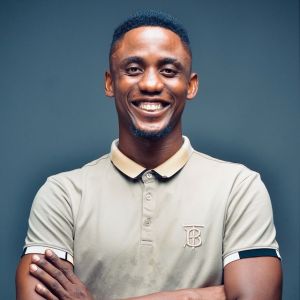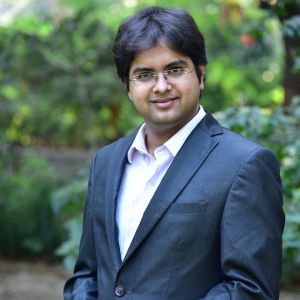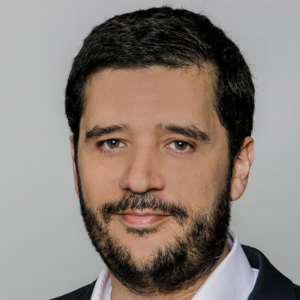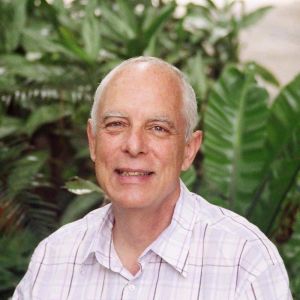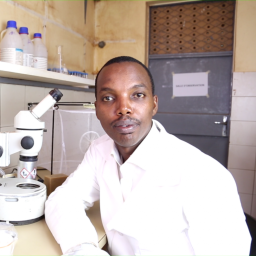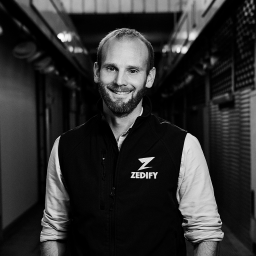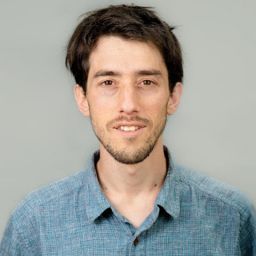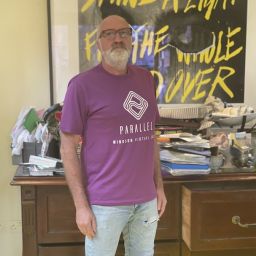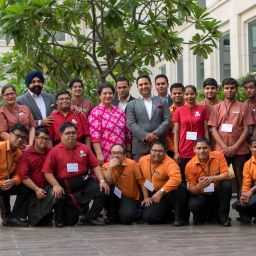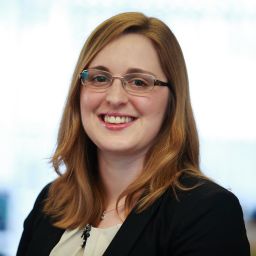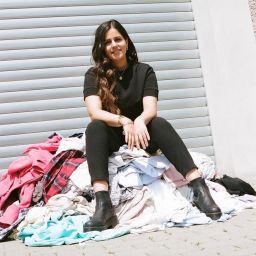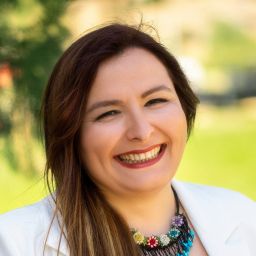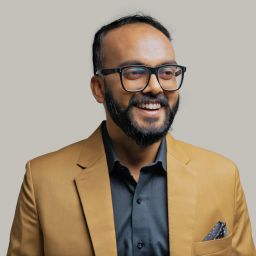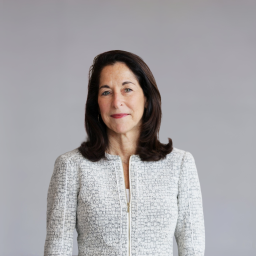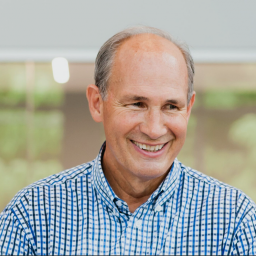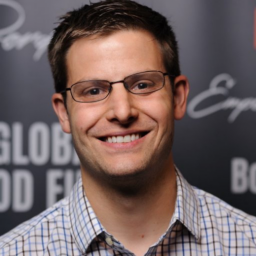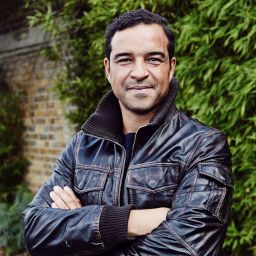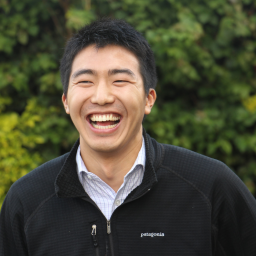Meaningful Business (MB:) Please tell us a bit about your background.
Ashish Gadnis (AG:) Originally from India, I grew up seeing first hand how poverty affects a person. The feeling of standing in line for food coupons and rations was one I hated, and made me feel like I was not a human being. I got into software programming as a way out of poverty, and left India in the early nineties to work in Latin America. From there I came to the US with only 240 dollars in my pocket.
I am blessed to have had a successful tech career and sold my last startup in 2012. I have always wanted to focus on ending extreme poverty, so I became a volunteer for USAID in 2013 and ran their social enterprise programme in Congo.
MB: What led you to start BanQu?
AG: After a few years in and out of Congo and multiple awards for our work (which I personally don’t think we deserved), I realised there was a massive flaw in my approach to ending extreme poverty.
This came about when one of the mama (women) farmers was refused a bank account even though she was amazing at her work. The local bank used all sorts of ridiculous excuses and said “we can’t bank her, but we will bank you”, looking at me. Hence we opted for the name BanQu (bank you).
That is when I realised that millions of the poorest farmers (especially women), waste-pickers, recyclers, artisanal miners, factory workers and refugees slog every day in our global supply chains – making our jeans, mining cobalt for our iPhones, growing coffee for our $10 ‘fair-trade’ latte, picking up our yoghurt cups and plastic bottles but are completely invisible, “un-bankable” for the simple reason that they cannot prove their existence in global supply chains.
A mother on the streets of Nairobi that picks up plastic yoghurt cups to make less than $2 a day is shunned, discriminated against and mistreated every day; yet the big yoghurt company claims ’circular packaging’. A refugee in the Rohingya camp is used as slave labour to make sneakers while the sneaker company claims ‘no slave labour’. The list goes on. That is why I started BanQu. Because without proof of her supply chain participation, that mother will never break the cycle of extreme poverty and gender inequity.
MB: What are the main problems you are trying to solve?
AG: I am working towards eliminating one of the most fundamental problems that we face, and that has unfortunately never been genuinely addressed by most organisations.
There are millions of people living in extreme poverty today whilst working in global supply chains that make the world economy what it is. Yet, these extremely hard-working people – smallholder farmers, waste-pickers, artisanal miners, factory workers, refugees – are completely invisible. This invisibility prevents them from improving their lives. While there are many apps and social enterprise models for poor and marginalised people, all of them lack the ability to give them the last-mile-first-mile full rights and data ownership for their participation.
So, for example, a cocoa company could be working with an NGO, the UN, a social enterprise etc. to show that they are helping poor farmers but in reality, can that farmer own his/her data in a way that is not controlled by the cocoa company? Can the waste-picker on the streets of Mexico City now prove that they pick up Pepsi and Danone materials and get a reasonable loan for a push-cart to grow their business? What happens if war breaks out in Congo and the mama farmer and her family are forced to move to Burundi? Can they still prove that they were a good farming household in Congo? The answer is no, because our current ’purpose’ lens is broken and disconnected from our ‘profit’ lens that is fuelled by supply chains.
The mama farmer or recycler may never have a smartphone so it doesn’t make sense to keep throwing apps at poor people. Instead, we can get the mama farmer a confirmation of quality, quantity and payout via local language SMS message and local currency so she can use this for a cash-out, or get mobile money like M-Pesa on her SMS phone, to pay for school fees and not worry about her husband stealing it. More importantly, this can then be built as an economic passport (history of every transaction she has participated in, independent of cocoa or barley or paper or plastic) that can never be taken away from her. So that is what we do. Simple. Complex tech but simple application. In fact, the BanQu interface for the mama farmer, waste-picker or refugee is a non-interface. It is an SMS message that establishes her rightful place in our daily global supply chains.
Lastly, the problem we have also solved is that brands can now, via BanQu, actually prove that they are meeting their SDG/ESG goals instead of just talking about it. We are a for-profit-for-purpose software company that sells software to brands who want to make their supply chains transparent, traceable and most importantly equitable. It is a problem that has never been solved before.
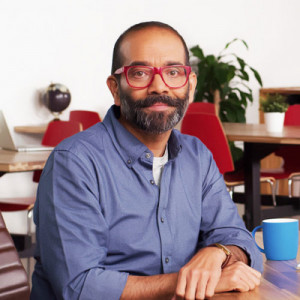 Ashish Gadnis, Co-Founder & CEO, BanQu
Ashish Gadnis, Co-Founder & CEO, BanQu
MB: What is your biggest challenge right now?
AG: Our biggest challenge is getting global brand CEOs and ESG leaders to move from talk of sustainability and equity to real work. Talk is cheap and a lot of CEOs are getting away with ‘greenwashing’ and ‘SDG window dressing’ while children are still forced to work on cocoa fields, cobalt mines and pick bottles on streets. Women (and men) farmers are forced to pay outrageous microfinance loan rates in the name of ‘financial inclusion’.
If the CEO of a beverage company cannot name one waste-picker on the streets of Lagos, or the CEO of a smartphone company cannot prove that children are in school, or the CEO of a chocolate company cannot name a smallholder mama farmer then we don’t have equitable, traceable and transparent supply chains.
MB: What is your vision for the future of your business?
AG: My dream is to enable 100 million people to get out of extreme poverty and be a $100Mn profitable SaaS business. We are currently supporting roughly 1 million people, whilst doing $3Mn in revenue. We call it our 100-100 goal. So, a long way to go!
MB: What is your advice to other leaders who want to combine profit and purpose?
AG: I am nobody to advise. All I would say is that if you want to run a purpose-driven profitable business then the mama farmer or waste-picker needs to own her economic passport, i.e. ability to prove her existence in your supply chain. No matter what your business is, it will have a supply chain.
________
Quickfire Questions
MB – What’s the best piece of advice you ever received?
AG – Make a difference in the lives of the poorest and marginalised without them ever knowing it is you. (We live by that mantra every day at BanQu. Most farmers, refugees, waste-pickers don’t know me because it’s an SMS message that empowers them and their own resilience. We are nobody. And that is good.
MB – Who inspires you?
AG – Mother Teresa and Dr. Martin Luther King.
MB – How do you define success?
AG – One farming family and one recycling family out of extreme poverty at a time. It is more a blessing measure than a success measure for me personally.
MB – What is something you wish you were better at?
AG – I wish I was better at articulating the disparity and discrimination in our global supply chains and making it visible to the whole world so that consumers would truly care and not just check their box by buying fair trade coffee knowing well that the poor farmer in Guatemala is still in extreme poverty.
MB – What is the one book everyone should read?
AG – Only The Paranoid Survive by Andy Grove
MB – What do you do to relax?
AG – I don’t. I will when we achieve our 100-100 goal – to enable 100 million people to get out of extreme poverty and be a $100Mn profitable SaaS business
________
Discover the other MB100 leaders recognised for their work combining profit and purpose to help achieve the United Nations Sustainable Development Goals in 2020, here.


